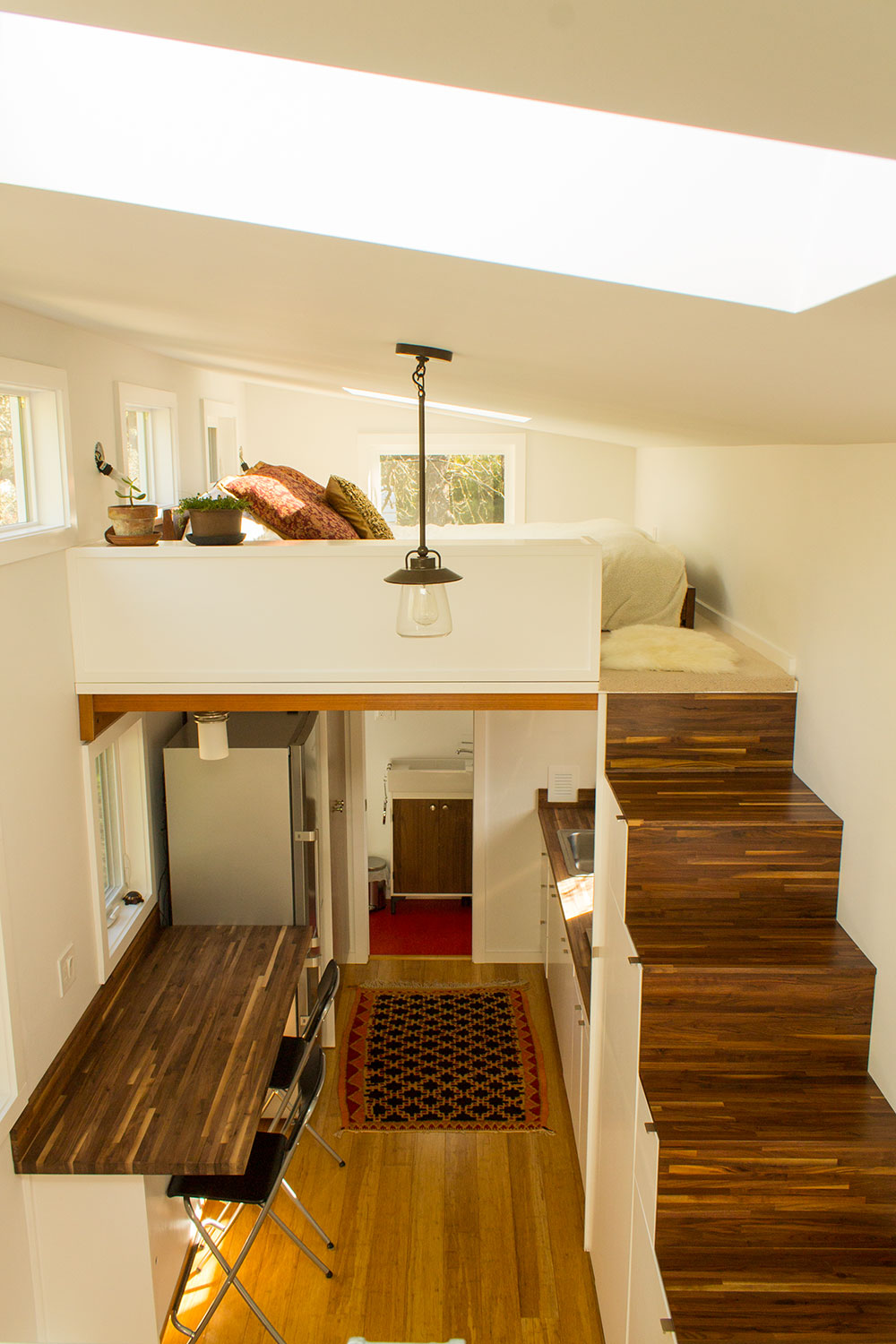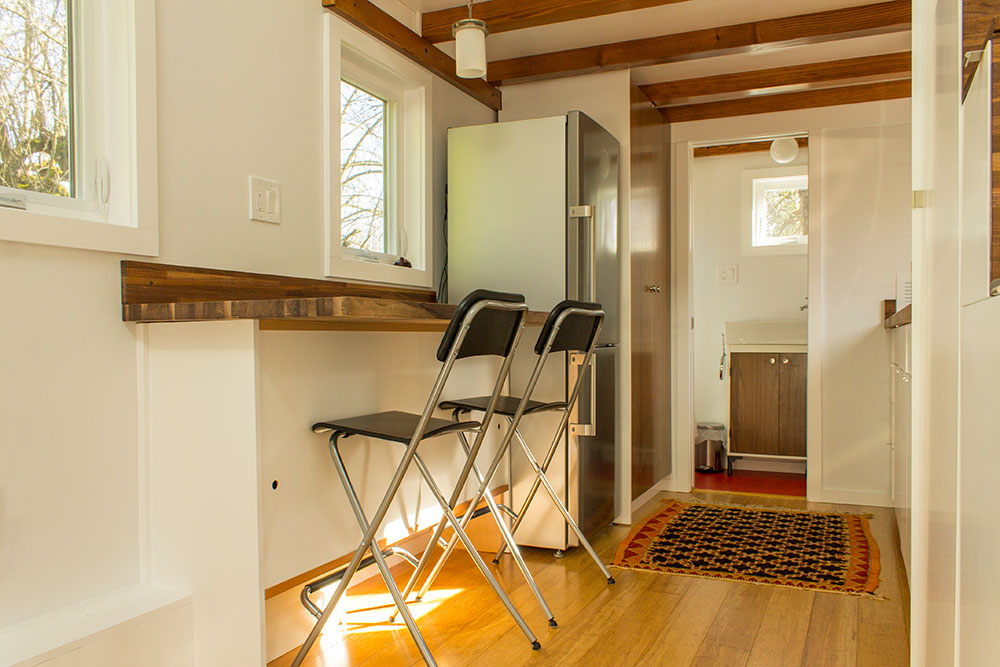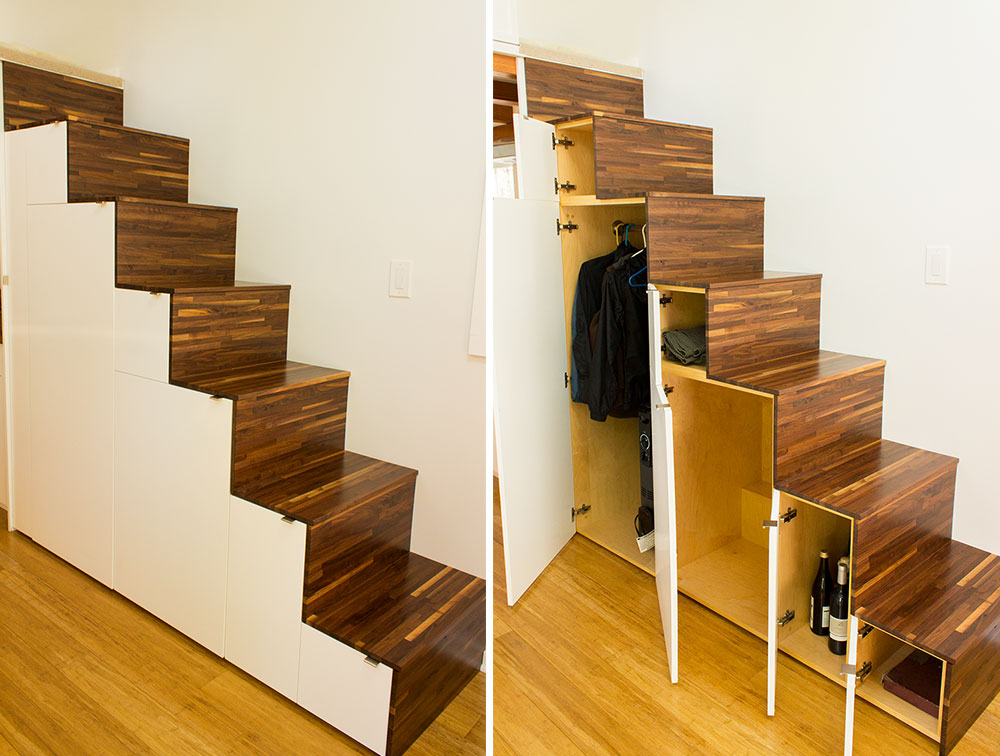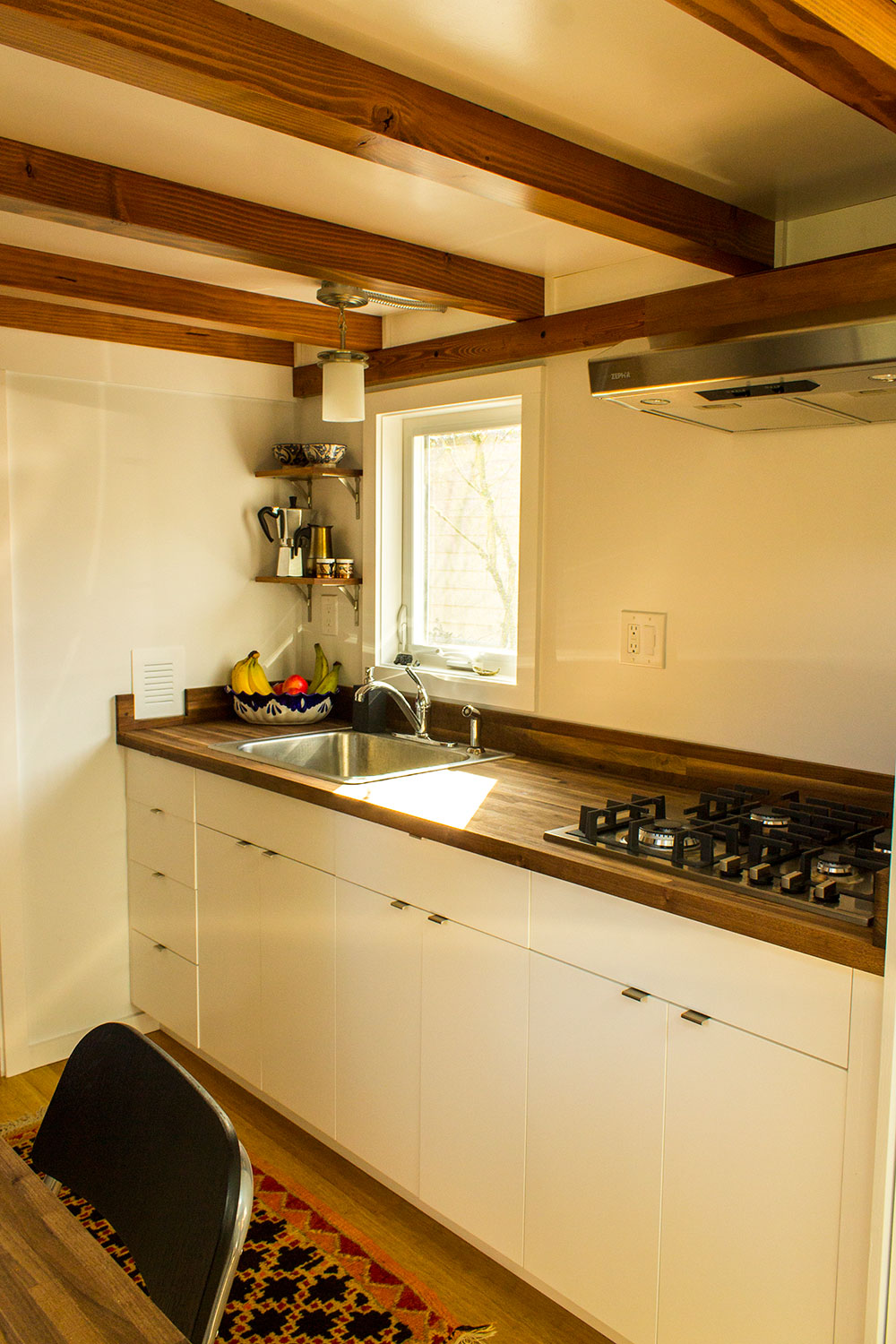Tiny homes appeal to many people, whether as a solution to surging rents or because of the freedom they can lend your lifestyle. But if you decide living in 400 square feet (or less) is for you, how do you actually make it work?

Here are five features that help make tiny homes functional - and even comfortable.
1. A bed on the main level
Although most tiny homes have lofted beds for obvious space-saving reasons, it's a good idea to also have somewhere to sleep on the main level for guests, or if you can't make it up the stairs due to an injury, notes Dee Williams, author of “The Big Tiny” and founder of Portland Alternative Dwellings.
One of the easiest and most efficient ways to put a bed in the main living area is to purchase a couch that converts to a bed.
2. A ton of natural light
Many tiny homes are restricted to an 8.5-foot width and 13.5-foot height due to federal and state highway rules on transporting structures. (Although you can build a tiny home on a foundation, many tiny home owners choose to place theirs in backyards or even in RV parks, which means the home will need to be moved once it has been built.)
Because of this limited amount of space, the more natural light, the better. "Using windows or different wall finishes can make a space feel a lot bigger," explains Derin Williams, builder and designer for Shelter Wise, a design-build firm based in Portland, OR.

3. Creative storage solutions
If you are living (or planning to live) tiny, then a large majority of your items will most likely need to be recycled, given away or tossed. However, the items you still have will need a space, which can be a challenge in less than 400 square feet.
Simple solutions like hanging up your pots and pans instead of storing them in drawers, or keeping extra blankets and pillows in an ottoman or trunk, are good space savers.
When building your tiny home, consult with your builder, as there are tons of creative ways to make space for your items. "Many people have collapsible or hidden drawers in their tiny homes,” notes Dee. “A lot of builders are now also putting drawers in the toe-kick area, which is an awesome additional use of space."
4. Multipurpose areas
In a tiny home, every area has to be flexible in how it is used. A kitchen will not be your kitchen all the time in your tiny home, because it could be your office, dining room and maybe even your closet at any point in the day.
Because each room has to be multipurpose, it's important to have furniture that reflects these uses. "If you have a table for eating, make that space multifunctional,” says Derin. “Remove the table, and then you'll have a lounge area. Drop down the table and make it a bed.”
5. Multi-use appliances
Many of us are familiar with the stackable washer and dryer, and maybe some even have experience with combination washer/dryers, but the popularity of tiny homes has given rise to appliance innovation.
"GE and other manufacturers are leaning toward developing smaller appliances for tiny homes, studios and mother-in-law suites,” says Dee. “The idea is that you could have a whole kitchen setup - kitchen sink, range, dishwasher - all built into one set."
Although these products may not be widely available at every major appliance store, it could be something to look into if you are serious about moving into a tiny home.
All photos courtesy of PAD Tiny Houses. The home shown is the Hikari Box Tiny House, designed by Shelter Wise. Plans for this home are available from PAD Tiny Houses.
Originally published April 1, 2016.
Related:
- Secrets of a Tiny Home Kitchen
- Could You Live 'Tiny'? See How a Seattle Couple Found Room for Their Dreams
- Meet Dee Williams: She Lives in 84 Square Feet
from Zillow Porchlight http://www.zillow.com/blog/tiny-home-traits-194949/
via Reveeo
No comments:
Post a Comment